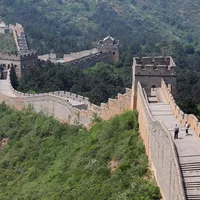215和 妈妈 跳舞
и|мама|танцевать
||dance
215 Tanzen mit Mutti
215 Dancing with Mommy
215 Bailando con mamá
215 et maman dansent
215 ママとダンス
215 и мама танцуют
和 妈妈 跳舞
и|мама|танцевать
||dance
Dancing with mom
danser avec maman
танцуют с мамой
我 的 家乡 在 中国 的 东北 ,东北 人 爱 扭 秧歌 *。
я|притяжательная частица|родина|в|Китай|притяжательная частица|Северо-восток|Северо-восток|люди|любят|танцевать|Янцзэ
||hometown||||Northeast||Northeastern people love to dance the yangko dance.|do the yangko dance||
My hometown is in the northeast of China, and people in the northeast love to dance yangko*.
ma ville natale est dans le nord-est de la Chine, les gens du nord-est aiment danser le yangge.
私の故郷は中国東北部にあり、東北の人々はヤンコ*を踊るのが大好きです。
Моя родина на северо-востоке Китая, северо-восточные люди любят танцевать янгэ *.
我 妈妈 年轻 的 时候 很 喜欢 看 秧歌 ,尤其 是 春节 *的 时候 ,大街 上 常常 有 一队 人 敲锣 、打鼓 和 扭秧歌 。
я|мама|молодая|частица притяжательности|время|очень|нравилось|смотреть|танец|особенно|есть|Китайский Новый год|частица притяжательности|время|улица|на|часто|есть|одна группа|людей|бить в гонг|играть на барабанах|и|танцевать танец
||||||||||||||||||||frapper le gong|||
||young||||||yangge|especially||Spring Festival|||the main street||||a group||beating a gong|playing drums|and|dancing yangge
When my mother was young, she liked to watch Yangko very much, especially during the Spring Festival*. There was often a group of people playing gongs, drums and twisting Yangko on the street.
Quand ma mère était jeune, elle aimait beaucoup regarder le yangge, surtout pendant le Nouvel An, où il y avait souvent une troupe de personnes frappant des gongs, jouant des tambours et dansant le yangge dans les rues.
Когда моя мама была молодой, ей очень нравилось смотреть янгэ, особенно во время праздника весны *, на улицах часто можно было увидеть группу людей, играющих на гонгах, барабанах и танцующих янгэ.
可是 她 那 时候 不好意思 去 参加 ,只能 看 。
но|она|тогда|время|стеснялась|пойти|участвовать|могла только|смотреть
but||that||sorry||||watch
But she was embarrassed to attend at that time, so she could only watch.
Mais à l'époque, elle n'osait pas participer, elle pouvait seulement regarder.
Но в то время ей было неудобно участвовать, она могла только смотреть.
现在 她 退休 了 ,有 很多 空闲 时间 ,也 需要 锻炼 身体 ,就 跟 她 的 老朋友 一起 每天 唱 唱歌 ,扭 扭秧歌 。
сейчас|она|на пенсии|маркер завершенного действия|есть|много|свободного|времени|также|нужно|тренироваться|тело|тогда|с|она|притяжательная частица|старый друг|вместе|каждый день|петь|песни|танцевать|танец Янге
||retired|||a lot of|free|time||needs|exercise|||||old friend||every day|sing|sing|dance|twist yangko|
Now she is retired. She has a lot of free time and needs to exercise. So she sings and twists Yangko with her old friends every day.
Maintenant qu'elle est à la retraite, elle a beaucoup de temps libre et a aussi besoin d'exercer son corps, elle chante et danse le yangge tous les jours avec ses vieux amis.
Теперь она на пенсии, у нее много свободного времени, и ей нужно заниматься физкультурой, поэтому она каждый день поет и танцует с ее старыми друзьями.
秧歌 音乐 有 很浓 的 中国 北方 音乐 的 特色 ,演奏 的 乐器 主要 是 唢呐 *和 锣鼓 *,声音 非常 响亮 。
янгэ|музыка|есть|очень насыщенная|притяжательная частица|Китай|Север|музыка|притяжательная частица|особенности|исполнение|притяжательная частица|инструменты|в основном|есть|суона|и|барабаны|звук|очень|громкий
|||||||||||||||||gongs et tambours|||fort
Yangge|music||very strong||China|North|music||characteristics|performance||musical instruments|mainly||suona||gongs and drums|sound||loud
Yangko music has a strong characteristic of northern Chinese music. The instruments played are mainly suona* and gongs and drums*, and the sound is very loud.
Музыка янгко имеет ярко выраженные черты северокитайской музыки, основные инструменты - это суона и гонг, звук очень громкий.
东北 的 老人 大多 很 喜欢 这种 音乐 ,因为 他们 觉得 很 喜庆 ,也 很 热闹 ,让 他们 想起 小时候 。
Северо-восток|притяжательная частица|пожилые люди|в основном|очень|нравится|этот вид|музыка|потому что|они|считают|очень|праздничная|также|очень|шумная|заставляет|они|вспоминать|детство
|||||||||||||||||ils||
||the elderly people|||||music|||||festive|||lively|makes||think of|
Most elderly people in the Northeast like this kind of music because they find it very festive and lively, reminding them of their childhood.
Пожилые люди на северо-востоке в основном очень любят эту музыку, потому что они считают ее очень праздничной и шумной, что напоминает им о детстве.
可是 我 和 我 的 哥哥 就 不 喜欢 这种 音乐 ,觉得 很 吵闹 。
но|я|и|я|притяжательная частица|брат|просто|не|нравится|этот|музыка|чувствовать|очень|громкая
|||||older brother|||like||music|||noisy
But my brother and I don't like this kind of music and find it very noisy.
Но мне и моему брату не нравится такая музыка, мы считаем, что она очень громкая.
虽然 扭秧歌 和 跳舞 不 一样 ,可是 我 妈妈 觉得 扭秧歌 就是 跳舞 。
хотя|танец|и|танцевать|не|одинаково|но|я|мама|считает|танец|это|танцевать
Although|twist yangge||dancing||||||thinks|dancing the Yangge||
Although dancing yangko is different from dancing, my mother thinks dancing yangko is just dancing.
Bien que le Nianhua et la danse ne soient pas la même chose, ma mère pense que le Nianhua est une danse.
Хотя танец с扭秧歌 не такой, как обычный танец, моя мама считает, что扭秧歌 - это и есть танец.
去年 过年 我 回家 的 时候 ,妈妈 让 我 陪 她 每天 在 锣鼓 和 唢呐声 里 “跳舞” 。
в прошлом году|на Новый год|я|домой|частица притяжательного падежа|время|мама|позволила|мне|сопровождать|её|каждый день|в|барабаны|и|звук суанна|в|танцевать
last year|during the Chinese New Year||||||||accompany||||drums||suona sound||dance
When I went home during the Chinese New Year last year, my mother asked me to accompany her to "dance" with gongs, drums and suona every day.
L'année dernière, lorsque je suis rentré chez moi pour le Nouvel An, ma mère m'a demandé de l'accompagner chaque jour à danser au son du gong et de la suona.
去年の旧正月に家に帰ったとき、母は毎日ゴング、ドラム、チャルメラで「踊る」ために彼女に同行するように頼みました。
В прошлом году, когда я вернулся домой на Новый год, мама заставила меня каждый день "танцевать" под звуки барабана и суна.
我 跟 妈妈 一起 “ 跳 ” 了 几次 , 发现自己 也 开始 喜欢 这种 东北 民间 的 音乐 和 秧歌 了 。
I "dipped" several times with my mother, and found that I also started to like this folk music and Yangko of the Northeast.
J'ai dansé quelques fois avec ma mère et j'ai découvert que j'ai aussi commencé à aimer ce type de musique folklorique du nord-est et le Nianhua.
Я "танцевал" с мамой несколько раз и обнаружил, что тоже начал любить эту народную музыку с севера и扭秧歌.
SENT_CWT:9r5R65gX=3.28 PAR_TRANS:gpt-4o-mini=1.62
ru:9r5R65gX
openai.2025-02-07
ai_request(all=15 err=0.00%) translation(all=12 err=0.00%) cwt(all=179 err=10.61%)

